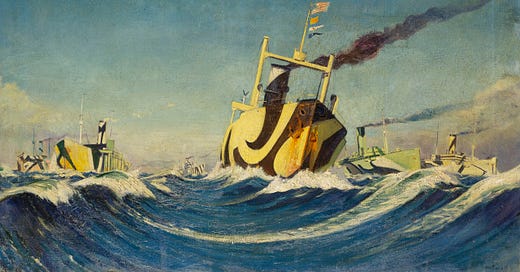
Adam Roberts is a genius, a mad and wonderful polymath, whom we at
follow in astonishment and awe. (You should too: He blogs here.) An academic at Royal Holloway, University of London, he’s the author of over twenty novels, a critic of music and post-Renaissance Latin poetry, and the author of the Plagrave History of Science Fiction. His most recent novel is The Death of Sir Martin Malprelate. There seems nothing Roberts can’t do, and when he proposed writing a note on one of Kipling’s lesser-known World War I poems, we leapt at the opportunity to present it.Keep reading with a 7-day free trial
Subscribe to Poems Ancient and Modern to keep reading this post and get 7 days of free access to the full post archives.



